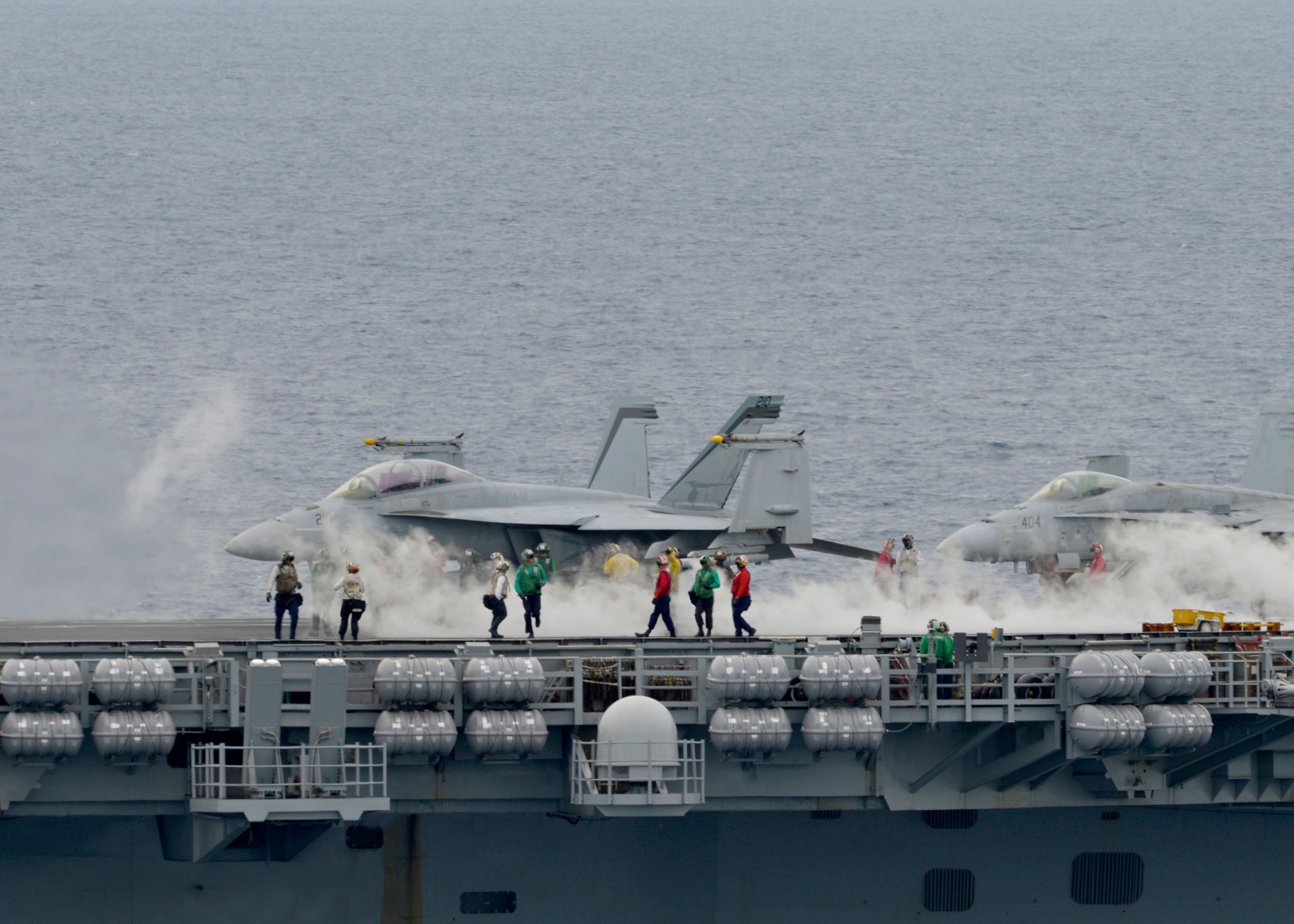German Debate on Nuclear Weapons: Implications for NATO

Return of the Nuclear Issue
The trigger for Mützenich’s intervention was a decision by the German Ministry of Defence. In April 2020, it announced the selection of Boeing’s F/A-18 as the new aircraft for carrying out nuclear missions after the planned decommissioning from 2025 of Tornado aircraft currently used in this role. The issue of participation in the nuclear-sharing programme, under which some non-nuclear NATO states have the capability to use U.S. nuclear weapons during wartime, has been a divisive one for German politicians and experts. Most of the German population remains critical of the stationing of nuclear weapons on German territory (83% of respondents in a July opinion poll commissioned by Greenpeace).
The way this issue was raised—in a press interview and subsequent declarations of support by SPD co-chairs—points to an attempt on the part of the SPD leadership to position the party as an opponent of close cooperation with the U.S. and to the stationing of its nuclear weapons. This may be important ahead of next year’s parliamentary elections, given the prospect that SPD could form a coalition with the Green Party, critical of nuclear weapons. However, the ruling coalition of CDU/CSU and SPD confirmed that the current policy with regards to nuclear weapons and its commitments under NATO remain unchanged. Minister of Foreign Affairs Heiko Maas, who is also an SPD member, distanced himself from the proposals.
Germany’s Importance in the Programme
Probably only about 20 of the estimated 100-150 B-61 bombs deployed in Europe are stationed in Germany, at the Büchel airbase. Germany is not the only country in the nuclear-sharing programme—Dutch, Italian, and Belgian aircraft are probably also capable of carrying them—and nuclear weapons are stationed on their territory. Still, apart from the U.S., whose troops control the weapons and whose president exercises complete authority over their use, Germany is the key country in the current configuration of NATO’s nuclear posture.
Germany’s role is primarily because of historical and strategic considerations: the nuclear-sharing model was developed during the Cold War in response to Germany’s concerns about U.S. readiness to defend Europe in the event of a Soviet attack, and the fears of other allies about Germany acquiring its own nuclear weapons. Another important factor is that Germany, Europe’s political and economic leader, assumes responsibility for this aspect of European security, acquiescing to the political and financial burdens involved (including the costs of the purchase of aircraft). Finally, Germany’s continued involvement in the nuclear mission is a deterrent signal to Russia. In its overall policy, Germany uses a two-pronged approach: recognition of the need to contribute to NATO’s nuclear deterrence and activity on arms control.
The Eastern Flank States and Nuclear Policy
The Eastern Flank states, particularly Poland, Lithuania, Latvia, and Estonia, believe that any conflict with Russia would have a nuclear dimension—even if nuclear weapons were not used immediately, there would be a danger of escalation to this level. The Alliance must therefore have at its disposal options in the event of threats to use or actual use of nuclear weapons by Russia. U.S. nuclear weapons deployed in Europe provide one such option. While the flank states focus on developing their conventional military capabilities, they believe that the nuclear and conventional dimensions jointly strengthen the credibility of deterrence. As with all the other “new” members that joined the Alliance after the end of Cold War, these countries participate in consultations and shaping its nuclear policy as part of the Nuclear Planning Group, and some also take part in exercises of operations supporting this mission (e.g., escorting aircraft carrying nuclear weapons). At the same time, they are covered by NATO’s political commitments made in the 1990s regarding the stationing of nuclear weapons. The Alliance announced in December 1996 and confirmed in the 1997 NATO-Russia Founding Act that it would not deploy nuclear weapons on the territories of new member states.
For the Eastern Flank countries, Germany’s current engagement in the nuclear mission is not only a political symbol of solidarity but also concrete confirmation that Germany does not reject the possibility, however unlikely, of Russian aggression against NATO and the need to defend Alliance territory in extreme scenarios with nuclear weapons. Another advantage of the current model is also the direct involvement of Western European countries, thus strengthening the link between the security of various regions within the Alliance. In the event of war, Russia must, consider, for example, that an attack on bases where nuclear weapons are stored means striking the territory of Germany or other NATO countries outside the Eastern Flank.
Arguments in the German Debate
A crucial point of contention may be an objective assessment of the benefits and burdens of the nuclear-sharing role of Germany. Critics of the status quo point out that U.S. nuclear weapons deployed in Europe are irrelevant to the deterrence of Russia given the vast nuclear arsenals of the U.S., UK, and France. In their opinion, it is also difficult to show that German acquiescence to the stationing of nuclear weapons strengthens its position in the Alliance or towards the U.S. Without disclosing classified discussions regarding NATO decision-making and operational planning on nuclear issues, supporters of the current model may find it difficult to prove that Germany’s voice is more important than other non-nuclear countries.
According to backers of the change of policy, the removal of nuclear weapons from Germany could open a path for dialogue with Russia on the reduction of nuclear arsenals. However, it is much more likely that, as Mützenich’s critics argue, Germany’s unilateral decision would undermine the Alliance’s policy towards Russia and not lead to any change on the Russian side.
Leaving aside the issue of the utility of B-61 bombs deployed in Europe for the credible deterrence of Russia, the considerations regarding Allied solidarity and the importance of keeping German commitments in the context of the deterioration of the situation on the Eastern Flank after 2014, seem to be important arguments for maintaining Germany’s current role. Even if Germany’s position in the Alliance does not depend only on involvement in NATO’s nuclear policy, it undoubtedly creates an additional platform for bilateral contacts with the U.S. In a major crisis, the importance of countries participating in the nuclear-sharing programme will probably be greater than other non-nuclear countries when the use of nuclear weapons is to be discussed.
Conclusions
Germany’s exit from the nuclear-sharing programme is not a foregone conclusion. Much depends on the results of the German debate and the outcome of the 2021 election. Developments in the U.S. will also be important. If the Democratic presidential candidate, the former Vice President Joe Biden, wins, the argument raised in the German debate about the need to distance the country from the policy of President Donald Trump will be nullified. Proponents of withdrawing nuclear weapons from Germany may then wait for U.S. initiatives or try to move the discussion about the future of nuclear policy to the Alliance level—an option that a Biden administration may also be interested in. If Trump is re-elected, the position of supporters of withdrawal may be strengthened, perhaps as part of an overall redefinition of Germany’s policy towards the U.S.
Before Germany makes its decision, it would be premature to discuss alternative solutions within NATO involving Poland or other countries. To weigh in on the German debate, Poland, other partners of Germany, and Alliance leadership should consistently highlight the importance of maintaining the German involvement, as well as better explain to the public in Germany and other NATO countries the political and operational role of the U.S. nuclear weapons deployed in Europe.
However, changes in NATO posture cannot be ruled out, especially because the German position could affect the decisions of the Netherlands and Belgium in the nuclear sphere. If the German political parties declaring their commitment to withdraw nuclear weapons win and form a coalition government after the 2021 election, Germany may opt out of participation in nuclear sharing, most likely maintaining support for NATO nuclear policy as such. It will probably also consider strengthening its conventional forces and increasing their presence on the Eastern Flank to offset the negative effects of withdrawing from nuclear sharing. The assessment of any such change in German policy would depend on the details of the new approach and its comprehensive impact on the functioning of the Alliance and relations with Russia.


